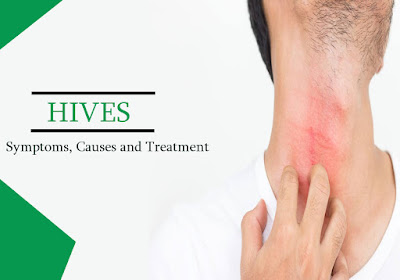Skin diseases affect people of all ages. There are hundreds of skin conditions that affect us so to understand the differences between them we should see a skin specialist. There are many skin specialists in Delhi near me but choosing the right doctor is difficult. So need to find the best skin doctor around me.
 |
| Best Skin Doctor near me |
Rashes, cysts, breakouts, redness, and blisters all can be symptoms of conditions as hives, measles, psoriasis or eczema.
• Hives is a skin rash caused by a reaction to food, medicine or other irritants. As a result of hives, one gets the swollen, pale red bumps on the skin due to the cause of any certain body reaction or allergies and sometimes for unknown reasons.
• Hives can suddenly cover any part of your body like face, lips, throat, tongue or ears. Each skin lesion lasts more or less 24 hours but fresh ones can appear one after the other. They can even appear till gets faded and its marks last for several days.
• But in some cases, they stay for more than six weeks which is then called chronic urticaria while shorter ones are known as acute urticaria. Over 20 percent of the population suffered from Acute Hives.
• Some Blood tests are required to examine the causes of itching and swellings, even major skin diseases have symptoms like hives.
Different types of hives are as follows: -
Hives are broadly categorized on the basis of time it lasts, into two parts: -
They are
1. Acute urticaria (usually referred to as ordinary hives, which can last up to six to eight weeks)
2. Chronic idiopathic urticaria (usually referred to those which lasts more than six to eight weeks).
Some common symptoms of hives: -
These are some common signs of hives:
1. Red and pink raised Swellings.
2. Lumps which covers the area either alone or can cover a large area.
3. Swelling may get reduced within 24 hours but a new lump appeared at another spot.
4. Faces difficulty in breathing
5. Tightness feels in the chest
6. Swelling on the area of the tongue, lips, or face.
Many times it is seen that people get affected by hives on the same area again & again on their body.
How are Hives diagnosed?
To find the possible cause of hives, your doctor will need to ask many questions. There is no specific treatment and test that is conducted in the market but thorough care must be done by a prescribed doctor.
Causes:-
Hives are very common anyone can have them. Any allergen can trigger hives. Commonly these things trigger an allergic reaction in the body so it's better to be aware of them.
• Foods: Tree nuts, peanuts, Fruits with citric acids milk, egg, and shellfish. Medicines of high dosages
• Insect bites and stings of bees
• Animal’s especially street dogs and cats. Pollen grain especially of wildflowers
• Latex can also be allergic
• Allergy shots.
• Infections which include colds and major infections caused by some fungus or maybe bacteria.
• Excessive sun exposure (solar urticaria), heat, cold, or water.
• Excess stress or exercises.
• Contact with chemicals
• Scratching the skin.
Treatment: -
The treatment for urticaria is by medication of antihistamine. Other treatments block other parts of the histamine system, using steroids or immunosuppressive drugs and to diminish the chemicals released by the mast cells. Other medication includes the application of calamine lotion, intake of diphenhydramine, such as Benadryl.
Here are some remedies which you can follow:
1. Apply cool compresses or wet cloths to the affected areas.
2. Try to work and sleep in a cool room.
3. Wear loose-fitting lightweight clothes.
4. Bathing in an anti-itching solution, can soothe skin and reduce irritation.
5. Apply Aloe vera to the affected area. It has some healing properties, that may give some relief.
How to manage hives?
When Hives are in the initial stage and less in number and swelling is less, you may not need treatment. The icing on the skin relieves itching by placing cool cloths on the hives, or by taking cool showers.
Some people have a bad allergic reaction, as breathing problems talk to good skin doctor about an “auto-injector.” which stops the allergic reaction when it is injected into your thigh. Auto-injectors are spring-loaded syringes.
So take care before this affects you severely.










No comments:
Post a Comment